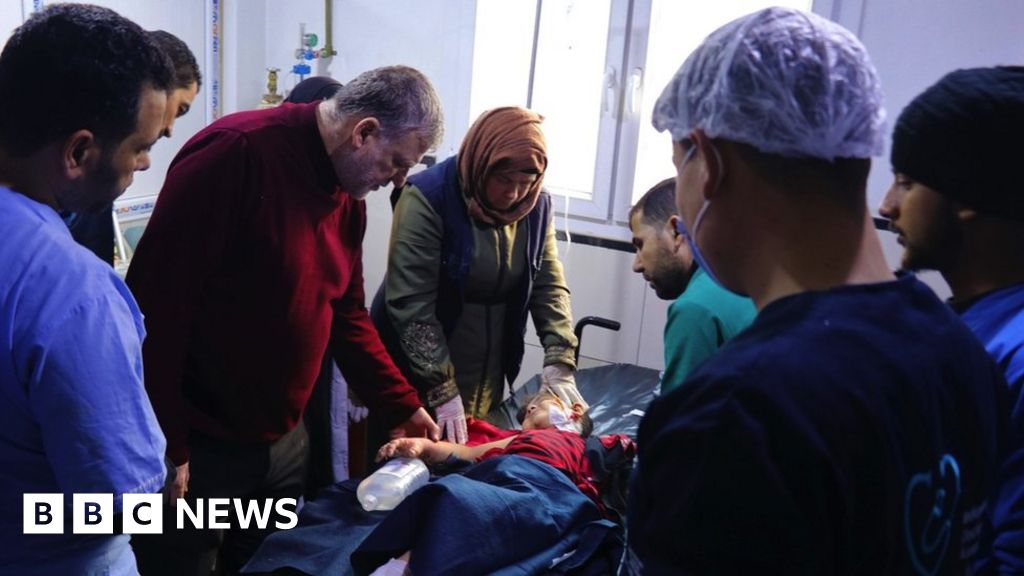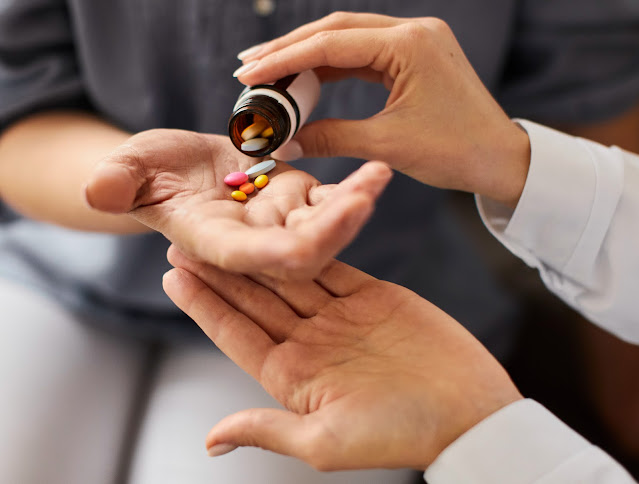Turkey and Syria earthquake: ‘As soon as he looked at me, I started crying’ - BBC News

Turkey and Syria earthquake: ‘As soon as he looked at me, I started crying’ - BBC News
"The look in this child's eyes really got to me," says Dr Ahmed al-Masri. "I don't know why but as soon as he looked at me, I started crying."
It was more than 30 hours after Monday's devastating earthquake and he was exhausted.
He and just one other doctor were treating scores of injured people being brought to their hospital in Afrin, a town in opposition-held north-western Syria.
Then, seven-year-old Mohammed arrived, having been dug out from beneath the rubble of his collapsed home.
Rescuers found him lying beside the body of his father, who had been crushed to death along with his mother and his siblings.
"The way the boy was looking at us, I felt like he trusted us, he knew that he was in safe hands now," Dr Masri tells me in a Zoom call.
"But I also felt he had a lot of strength, like he was holding in the pain of his injuries. What makes a seven-year-old child so strong and resilient?"
Dr Masri is a resident surgeon at Al-Shifa Hospital, which is supported by the Syrian American Medical Society (SAMS), a charity. He says it received more than 200 patients in the immediate aftermath of the disaster.
Another young survivor brought in by rescuers was an 18-month-old boy.
Dr Masri checked him over and established that he was fine. But he then realised that the boy's parents were not with him.
"Suddenly, I saw his father run to him and hold him, sobbing and crying," he says.
"The father told me this child was the only survivor in his family. The rest of the family was laid out in the corridor, dead."
Dr Masri says staff at the hospital were stunned at the scale of the catastrophe, with "waves" of patients arriving all at once.
"I never imagined that an earthquake could create this much damage, could lead to this number of patients."
Sadly, he is used to dealing with major incidents.
In 2013, he was working in a field hospital when rockets containing the nerve agent sarin were fired at several opposition-held suburbs of the capital, Damascus. Hundreds of people were killed and thousands of others were injured.
"At that time, we were trained and prepared, as doctors for such an event," Dr Masri says. "We were able to organise ourselves quickly. But in this scenario we weren't prepared. This situation was far worse."
Following Monday's earthquake, he and his colleagues in Afrin dealt with patients who looked lightly injured at first.
"They were injuries that you think are not serious, but someone then needs to have a limb amputated," he says. "We don't have the capacity in our hospitals to respond to this kind of disaster."
"The worst thing is to be a doctor in these circumstances. When you are unable to save a patient or ease someone's pain - that's the worst thing you can feel."
As he treated patients, Dr Masri also had to deal with not knowing whether his own family was safe because the electricity supply and the internet were both down.
His parents and siblings live just a few hundred metres away from the hospital, but his wife and children live across the border in the southern Turkish city of Gaziantep, which was close to the epicentre and was also badly affected.
"The worst feeling you can have during such crises is not knowing whether your family and loved ones are OK."
"We were looking at patients with two eyes - one to assess their injuries, and the other to see whether the patient is a family member or not."
A sigh of relief came when his brother rushed to the hospital to assure Dr Masri that his whole family was safe. He also managed to have a brief rest at the hospital.
"When I slept at that point, I just collapsed," he says. "There were moments where I needed someone to hold me up so I could keep working."
Dr Masri then managed to leave work and have breakfast with his family. He hopes he can eventually travel to see his wife and children in Gaziantep.
He says he also went to check on Mohammed the next day and asked the seven-year-old if he recognised him.
"Yes, you're the doctor who saved my life," Mohammed replied.
Related Topics
Crowds erupt as family rescued from rubble in Syria
Newborn baby pulled from collapsed Syria building
'The hospital was collapsing with my son inside'
Aerials of totally destroyed buildings in Idlib, Syria
Top Stories
Quake-hit Turkey issues 113 building arrest warrants
'Am I really alive?' - the emotional rescue of two trapped sisters
Russian soldier death rate highest since war began
Features
'I wanted someone to take better care of my baby'
The boxer who fled Iran seeking the freedom to fight
Super Bowl or Kelce Bowl? - your guide to NFL showpiece
Grieving a daughter in Wuhan - while being surveilled
15 apartments, three survivors - a lost community's stories
Your pictures on the theme of 'winter walks'
The time machine hidden in the bark of a 5000-year-old tree
Why are BP and Shell making so much money right now?
'Am I really alive?' - the emotional rescue of two trapped sisters
Elsewhere on the BBC
The Gen Z friendship problem
The world's most influential school?
Italy's ancient homes for dodging taxes
Most Read
© 2023 BBC. The BBC is not responsible for the content of external sites. Read about our approach to external linking.



Comments
Post a Comment